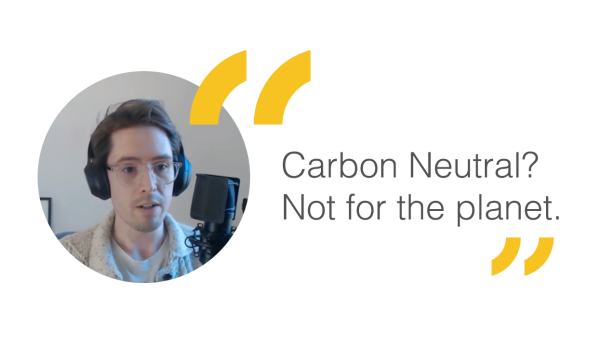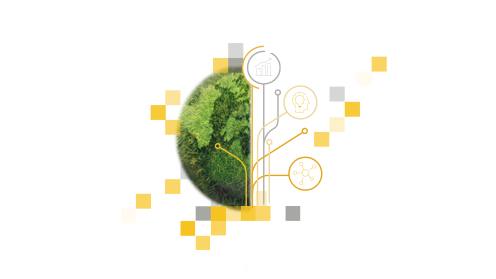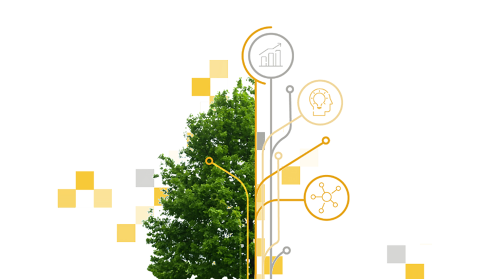Hosted by Jakob Muus, Director of the Sustainability Tribe at Transporeon, and joined by Anthony Miller, Logistics Marketing Consultant, the Anti-Greenwashing Masterclass covered the topics of greenwishing, greenwashing and how to make informed decisions and implement green initiatives to avoid misleading environmental claims and foster a truly sustainable supply chain. Based on a lot of data and opinionated examples, the key takeaways make for tough reading for the transport sector.

Greenwishing
03/09/2023 | 3 min
Takeaway 1: One step forward, nine steps back
The vast majority of carbon offsets are phantom – 90% are not having an impact and, according to one Cambridge University study, 94% of projects should not have been approved in the first place. Quoting other sources, between 52-98% of offsetting projects are less successful than what was claimed for them. In short: while we might be doing our best to comply with the requirements of the green agenda, measurements are like the Wild West.
Official reports back up this view. As many as six years ago, an Australian Government report raised similar concerns, as did a more recent EU study.
Conclusion: if you’re offsetting against that backdrop and accepting the numbers without further scrutiny, you’re greenwashing without knowing it.
Takeaway 2: Who’s winning? Not the planet
In a carbon-offsetting environment in which Company A may in good faith plant trees and Company B may, also in good faith, pull up those trees before they reach full maturity, the true loser is the planet. Yes, companies can claim that they spend a lot of money offsetting – and that may well be true – but is it enough?
From a single ton of CO2 released today, 40% will still be present in the atmosphere in 100 years. Of that 40%, 20% will still be here in 1000 years, and 20% of that figure in 10,000 years.
Conclusion: it’s not enough simply to offset. We must cut carbon emissions.

Takeaway 3: Common sense in carbon
Why are we so good at making bad products and decisions? Simple – we look for the path of least resistance, we favour compliance over common sense, and we always have a keen eye, for obvious reasons, on ROI.
We are very good at over-engineering the common sense out of situations – for instance, there are now Carbon offsetting NFTs available, which might be eye-catching, but which divert from the real issue. It is reduction that is required and that creative minds need to address.
If we focus on reducing emissions, rather than trying to game the system, we’ll make progress. Real options do exist, such as direct CO2 removal, renewable energy, energy efficiency, and carbon sequestration, but because they all come with a significant ‘but’ attached we take the much easier offsetting route.
Conclusion: If something sounds too good to be true, it probably is.
Takeaway 4: No need to read the label
The label ‘Greenwashing’ was coined in 1986, when hotels began to push their guests towards using fewer towels and less frequent washing of bed linen. It sounded eco-friendly and it struck home with guests, but ultimately it was about a clever cost-saving measure for the hotel. Hence ‘greenwashing’.
Today, many companies and organisations don’t even realise they are greenwashing, because they have started out with the best intentions – ‘greenwishing’ best describes it – but because they are not achieving concrete results, they are what we might call ‘accidental greenwashers’.
Labels abound. Try ‘0.1 greenwashing’, in which a company makes a lot of noise about a sustainability-related project, while (maybe) aware that the true impact of the project will be dramatically less than promised. It is not dissimilar to ‘active greenwashing’, by which companies announce large investments in green-related projects but, because they have not at the same time sought the necessary certifications, their true intentions are unwittingly revealed.
The over-engineering curse reveals itself in an entire new lexicon. Examples include:
Greencrowding – seeking refuge via safety in industry numbers
Greenlighting – placing too much focus on a small, largely ineffective green feature
Greenshifting – blaming the end consumer for poor green habits
Greenlabelling – referring to a project as ‘green’, when it is no such thing
Greenrinsing – moving the goalposts on a previously-announced target, to justify why it has not been or will not be achieved
Greenhushing – under-reporting or hiding green credentials to avoid scrutiny
Conclusion: Forget labels, do the right thing. Concentrate on real efforts that will make a real difference.
Takeaway 5: No more ‘pledge and hedge’
The logistics industry is a big part of the problem, being responsible for nearly 75% of global carbon emissions. Too many sustainability projects are either inaccurately measured, have poor parameters or are simply ineffective. Now is the time to stop gaming and fix it.
Countries do this too, particularly post-pandemic. It is the ‘Pledge and Hedge’ approach. They make firm commitments, they set deadlines, but meanwhile, their fast economic growth is nurtured by enthusiastic exploitation of fossil fuels. What will they do to correct this imbalance when their often self-imposed Net Zero deadline approaches, and how will they find a balance?
Conclusion: it all boils down to accountability.
Takeaway 6: Regulators need to grow a backbone
We need to stop applauding mindlessly every time a carrier talks about a sustainability initiative without digging into the specifics.
We are seeing short-term interests prioritised over long-term goals. An Accenture study revealed that 49% of CEOs say they are grappling with supply chain interruptions due to extreme climate events. But the fact is, these events are not as unpredictable as claimed. They are becoming predictable. Yet fewer than half of those same CEOs have actively started implementing changes.
And the profits remain huge from fossil fuels. If you earned $40k a day, every day since the day Jesus Christ was born, you’d still be $3 billion short of the profits made last year alone by just one of the largest fossil-fuel energy companies. With those numbers, we need to do better.
Conclusion: It’s the last hurrah for fossil fuels – the enormous profits must be invested in the right priorities.
Highlights from the Q&A
ANTHONY: I’d love to say, no that wouldn’t be wrong, as long as you do it in the right way, with the right partner. Don’t look at the cheapest option. Don’t just set it and forget it. Actively review and keep an active interest.
ANTHONY: Be suspicious if they’re very noisy about it yet it’s not a key part of their business! The best approach is to try to network, to speak to others. Let’s not stay in silos on this.
It’s about trust in the end. Regulators need to grow a backbone and until that time comes, you have to decide for yourself if you trust carriers or not. Ask for very granular data from them and see what they give you. If they give you 100% confidence, that doubt you had is gone.
All questions are valid. There are no stupid questions. They should be able to give you the right answers.
ANTHONY: That’s the big question and of course everyone would jump right on it if we knew the answers. The truth is there’s no such thing as a best practice, you need to find the right balance for you. Your best approach is to act on what works best for you and your data.
Final Thoughts:
Don’t set and forget - that’s when you end up greenrinsing.
It doesn’t matter what form your action takes, what matters is that you are using reliable, consistent data and achieving credible takeaways that you can act on.
The next in our series of Carbon Intelligence Mastermind masterclasses and events will be announced on our regular channels - details soon.

Carbon Intelligence Mastermind
A new movement for sustainability leaders
Join our brand-new community of sustainability, transportation, and supply chain experts at the forefront of green logistics, and discover the resources that will help you to measure, manage and reduce your carbon footprint in the most efficient and transparent way across the entire supply chain, including all transport modes and flows.



